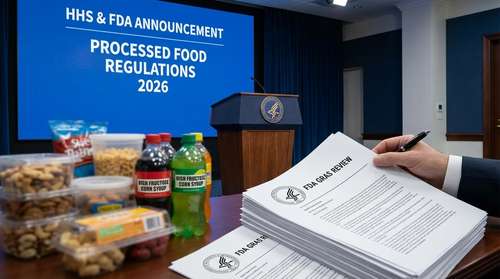There’s something about that first cup of coffee in the morning that makes you feel like you can take on the day. Aside from giving us that much-needed energy boost, coffee is now catching the eye of researchers who are examining its potential influence on type 2 diabetes risk. In this article, we’ll take a closer look at the impact of coffee, especially black coffee, on diabetes prevention and discuss what the latest research says about its health benefits.
You might be wondering, how can that simple cup of joe have an effect on something as complex as type 2 diabetes? Well, let’s dive in and explore the various aspects of coffee consumption and its relationship with blood sugar levels and insulin sensitivity.
The Hidden Goodness in Your Daily Brew
Coffee is more than just a morning pick-me-up; it’s a beverage loaded with natural compounds that might help reduce your overall diabetes risk. When you sip on a cup, you’re also taking in antioxidants, magnesium, and other molecules that can help improve your metabolic profile.
Imagine your coffee as a power-packed smoothie for your cells. Some studies have found that regular coffee consumption is linked with lower blood sugar levels and improved insulin sensitivity. In many ways, your favorite brew works like a silent helper, balancing several internal processes without you even noticing.
It’s interesting to note that the beneficial effects are more pronounced with black coffee. By keeping it simple and avoiding added sugars or creamers, you maximize the natural compounds that can potentially counteract type 2 diabetes risk. So next time you reach for your mug, think of the hidden goodness that might be working behind the scenes!
Coffee and Blood Sugar Levels: What's the Connection?
Have you ever wondered how your blood sugar levels react after that morning coffee? In this section, we break down the connection between coffee consumption and blood sugar levels. It turns out that the caffeine and bioactive compounds present in coffee may influence how your body handles sugar.
The caffeine in coffee has a well-known effect on alertness and metabolism, but it also plays a role in modulating insulin sensitivity. For many, this means that a cup of coffee can help moderate the spike in blood sugar levels after a meal by promoting better insulin performance. It’s as though your coffee acts like a conductor in an orchestra, bringing harmony to your inner workings.
Researchers have conducted various coffee research studies that suggest regular drinkers of coffee might see a lower risk of developing type 2 diabetes. While the mechanisms are still being unraveled by scientists, the consistent observations across different populations provide a hopeful perspective for coffee enthusiasts.
Unpacking the Science: How Coffee May Reduce Diabetes Risk
Let’s chat about what really might be happening inside your body when you enjoy a cup of coffee. The impact of coffee on type 2 diabetes risk is thought to be mediated by several factors, including its antioxidant properties and effects on inflammation. In simpler terms, coffee might help mitigate some of the harmful processes that lead to diabetes.
The secret lies in the myriad of compounds found in coffee. For instance, chlorogenic acid, a powerful antioxidant, is found in abundance in coffee and has been linked to improved glucose metabolism. These compounds help manage oxidative stress, which is a known contributor to insulin resistance—a key factor in type 2 diabetes development.
Another interesting aspect is the role of coffee in stimulating metabolic rate and improving liver function. The liver is crucial for glucose production and regulation, and healthier liver activity means a better handle on blood sugar levels. In many ways, your daily coffee ritual might be nudging your body towards better overall metabolic health.
Several observational studies have painted a picture where regular coffee consumption corresponds with a lower risk of developing type 2 diabetes. Although we can’t say that coffee is a magic bullet, integrating moderate amounts into a balanced lifestyle might just tip the scales in your favor.
Lifestyle Matters: How Moderation Plays a Role
Now, it’s crucial to remember that while coffee might offer some diabetes prevention benefits, it’s not the silver bullet for preventing type 2 diabetes. Maintaining a balanced lifestyle, exercising regularly, and following a healthy diet are equally important. Moderation is key when it comes to coffee consumption.
Think of your health as a mosaic where every piece counts. While one cup of coffee might help improve blood sugar regulation, pairing it with regular physical activity and a diet rich in whole foods ensures that you’re covering all bases. This balanced approach is what many nutrition experts recommend for mitigating diabetes risk.
It’s also important to note that everyone’s body responds differently to caffeine effects. What works wonders for one person might not yield the same benefits for another. For instance, some individuals may experience jitteriness or sleep disturbances if they overindulge in coffee, potentially offsetting any positive effects on insulin sensitivity.
So, how many cups are just right? Experts generally suggest a moderate intake, which can vary from person to person, but typically around 2-3 cups per day can be considered a good starting point. Listening to your body and discussing your coffee habits with a healthcare provider can help tailor a plan specific to your needs.
Before you start thinking that coffee is the gateway to perfect metabolic health, remember that these positive associations between coffee consumption and reduced type 2 diabetes risk are largely based on observational studies. They provide insightful correlations but not definitive cause-and-effect conclusions.
In essence, your daily coffee ritual, when enjoyed in moderation, might well be a complement to a broader strategy of diabetes prevention. The blend of caffeine effects, antioxidants, and improved metabolic responses could just be the kickstart you need to support a healthier lifestyle.
Wrapping It Up: Your Cup of Possibilities
So, what have we discovered? Coffee is more than merely a flavorful beverage; it holds potential benefits that might reduce your risk of developing type 2 diabetes. With influences on blood sugar levels, insulin sensitivity, and overall metabolism, coffee can be part of a healthy lifestyle that promotes diabetes prevention.
However, the magic is in the details. Moderation, paying attention to your body’s responses, and pairing your coffee consumption with good nutritional habits are essential steps toward reaping these benefits. Whether you’re an aficionado of a steaming mug of black coffee or you enjoy it with a dash of cream, this everyday ritual might offer more than just a burst of energy—it could be a small yet significant part of your journey toward better health.
Always remember, while coffee might be a friend to your metabolism, it shouldn’t be the only tool in your health toolkit. Balance remains paramount in the fight against type 2 diabetes. So, enjoy your coffee mindfully and embrace a lifestyle that supports your overall well-being!




